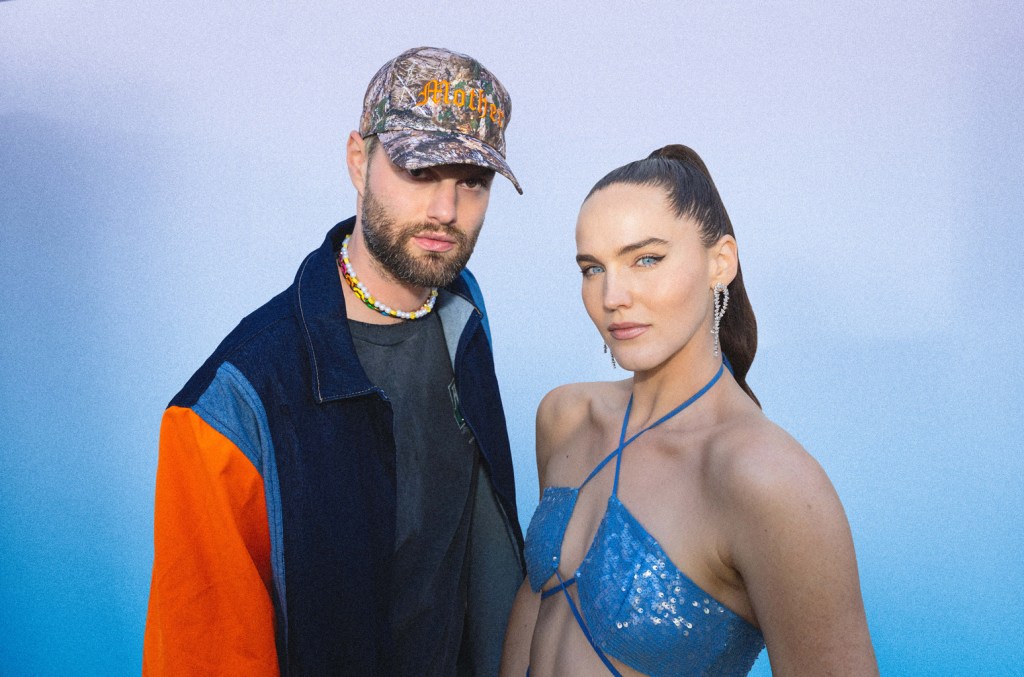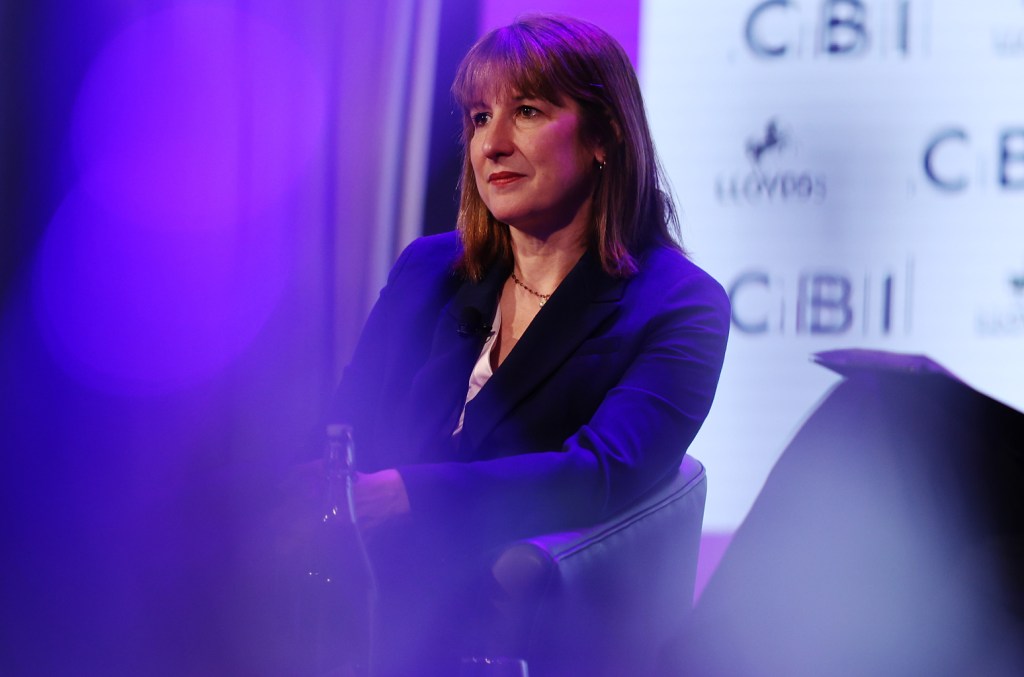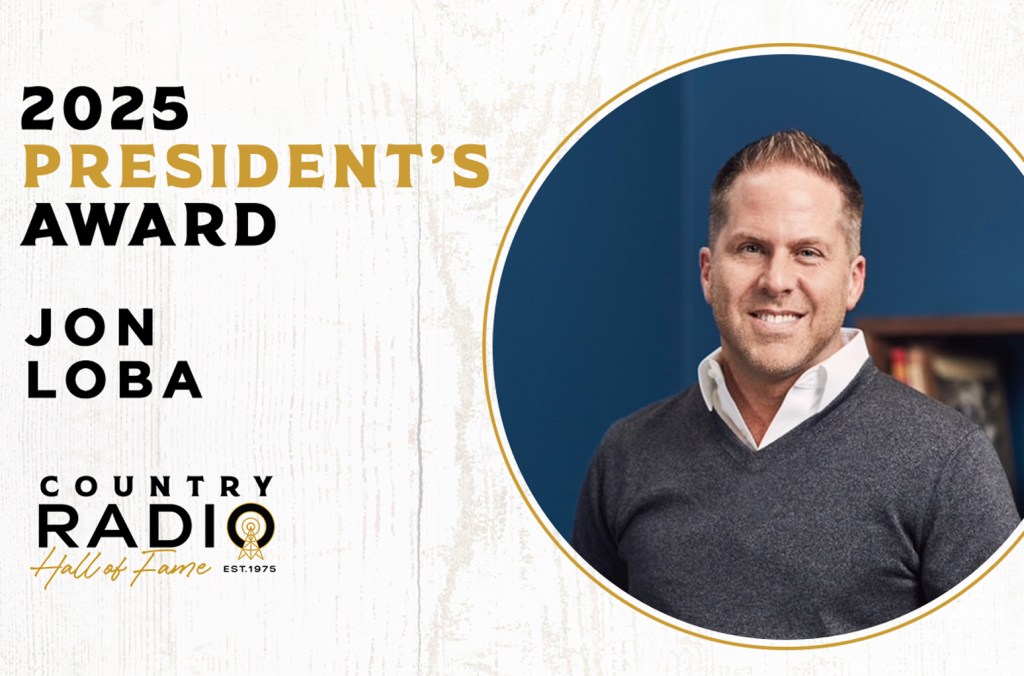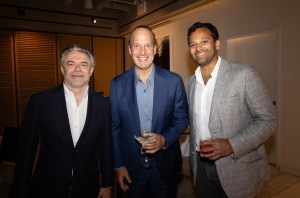Business News
Page: 11
Nashville music industry executive Mike Borchetta died on Saturday (June 14) at age 84, Billboard has confirmed. The news was first reported by Country Aircheck.
Borchetta served as vp of promotion at Curb Records from the late 1980s through the mid-1990s, and also worked at labels including Broken Bow, Capitol, RCA, Mercury and Rebel Engine. Along the way, he promoted music for numerous country and pop artists, including 29-time Billboard Country Airplay chart-topper Tim McGraw (Borchetta was key in McGraw’s signing with Curb Records), Hal Ketchum, The Beach Boys, Wayne Newton, Glen Campbell, The Four Seasons and Dusty Springfield. He also served as president at Lofton Creek Records, helping propel Heartland’s song “I Loved Her First” to No. 1 on Billboard‘s Hot Country Songs chart in 2006.
In an Instagram post, McGraw shared, “I am saddened to hear about the passing of the legendary music executive, Mike Borchetta. I came to Nashville the day my hero Keith Whitley died — on a Greyhound bus with only the clothes on my back, a guitar and a big dream. About as green as they come. I was able to get a meeting with Mike while he was working at Curb Records. He pretty much said we are signing you on the spot. I will be forever grateful for his belief in me. Gonna miss seein’ ya at my shows but I know you will be looking down with a smile. My heartfelt condolences to the family. Rest in peace my friend.”
Trending on Billboard
Beyond music, Borchetta and his wife Martha also raised and trained thoroughbreds.
Several of Borchetta’s children followed in his footsteps, forging their own successful music industry careers, including Big Machine Label Group CEO/chairman/founder Scott Borchetta (known for working with artists including Taylor Swift, McGraw, Thomas Rhett and Florida Georgia Line). Another son, Chris Borchetta, has worked at several labels, including Big Machine, Lofton Creek, Star Farm and Nine North, and launched an eponymous promotions and marketing company. Adelle Borchetta, has worked as director of radio promotion and marketing at Nine North Records, Turnpike Music and Edgehill Music and also launched an eponymous promotions and marketing company. And another daughter, Angela Borchetta, has worked at companies including Universal South, RCA and Big Machine; she also founded White House Promotion and Marketing.
Scott Borchetta wrote a tribute to his father on Instagram. “This Legend’s time here is done… without you, there’s no music biz or racing in my life… your memory shall live on… and you’re riding shotgun today in the #48 Chevrolet Xfinity car… Love you, dad…”
Information on funeral services is pending.
Billboard Canada Power Players is back for a second year, and it comes at a pivotal time for Canadian music. Canadian Content regulations — a principle that built the domestic industry — are up for review for the first time in a generation, with ongoing hearings taking place with the CRTC. The Online Streaming Act, meanwhile, is attempting to regulate major foreign streaming services to contribute to CanCon as the CRTC once did for radio — but companies like Spotify, Amazon and Apple Music aren’t taking it without a fight.
Those issues shadow the industry, which has recently seen both struggles and successes. The country was recently named the 8th largest music market in the world by the IFPI, and Toronto has emerged as a marquee live music market. That’s been reflected in the successes of and investments in new venues by companies like Live Nation Canada, MLSE and Oak View Group, who all appear on the list.
Trending on Billboard
As top execs at Live Nation Canada, Erik Hoffman, Riley O’Connor and Melissa Bubb-Clarke are orchestrating one of the most ambitious stretches in the company’s history. Together, the trio claims the No. 1 spot on Billboard Canada Power Players 2025. Already the biggest players in the Canadian music business, Live Nation is just getting bigger — and it’s on track for a record-breaking summer.
In the new Billboard Canada cover story, the three talk about their ambitious plans — including the about-to-open Rogers Stadium in Toronto, which will bring Oasis, Coldplay and BLACKPINK to the city this summer and triple the number of stadium shows.
Derek “Drex” Jancar of OVO Wins the Impact Award
As part of Billboard Canada Power Players, Derek “Drex” Jancar took the No. 1 spot in the Foundations category and accepted the Impact Award at the celebration in Toronto on Wednesday (June 11).
In the mid-2000s, Drex, Gavin Sheppard and Kehinde Bah co-founded The Remix Project, a community initiative that continues to influence global culture. Now, he’s doing it again as CEO of October’s Very Own (OVO).
On Wednesday night (June 11), Derrick Ross of Slaight Music presented Drex with the Impact Award as part of Billboard Canada Power Players 2025, with a donation to the Remix Project — a testament to the immense influence Drex has had within Canadian music and culture.
In an interview, Drex tells Billboard Canada about the impact of the Toronto community on all the work he does.
“It’s the nucleus of everything. It’s the thing you constantly come back to and think about: ‘Does this represent us, honestly and authentically?’” he says. “It’s where everyone worked on their skills and put blood, sweat and tears into their career paths. We obviously are global thinkers, but we’re always coming from that place. That’s our identity. It’s shaped us and it’s what makes us unique.”
Drex recalls meeting the key figures at OVO at Remix, including Oliver El-Khatib, Future The Prince, Niko Carino and Drake. The dedication that they poured into Drake’s burgeoning career in the late 2000s created a special energy in Toronto. He was already the hottest artist in the city, Drex recalls, but you could feel he was on the verge of becoming a global phenom — all while wearing his local connections on his sleeve.
“You could see what was happening behind the scenes, and it was really special to see everyone rally around and build such an amazing brand around him,” Drex says. “It was a time where you really started to believe in the city and the talent and the potential in the city and you were like, ‘Anyone can do anything from here. This is possible, it’s happening right in front of us.’”
The First Canadian Edition of Managers to Watch
Also this week, Billboard Canada unveiled its first Music Managers to Watch list.
Managers are the unsung heroes of the music industry. They are the hard-working decision makers behind some of the country’s most beloved artists. They make deals, orchestrate partnerships and make key strategic decisions. And though fans rarely know their names, they are key to the success of Canadian musicians. They don’t do it for personal glory, but to fulfill artistic visions that can break barriers and move millions.
These talented managers on the rise have helped some of the biggest artists tour stadiums, stun at the Met Gala or go gold without any label support. That’s an extra feat in Canada, where managers often have to navigate a tight-knit industry and geographic barriers to breakout success. In the feature, they share their tips for people new to the business and those who want to help introduce their artists to a global audience.
The list includes managers for Kaytranada, Jessie Reyez, Charlotte Cardin, Connor Price and more.
The Beaches’ manager, Laurie Lee Boutet, was named Manager of the Year. In an interview, she talks about how she helped navigate the Toronto band’s 2023 viral moment into sustained momentum on its way to its first hometown arena tour this fall.

Consumer demand for live and out-of-home entertainment remains high, but Generation Z consumers — born between 1996 and 2020 — are particularly motivated to pay extra for convenience, upgraded experiences and sustainable options, according to a new EY survey. Perhaps not surprisingly, Gen Z is less patient than the average consumer. Nearly two-thirds (66%) of Gen Z respondents plan to buy a “fast pass” or priority pass to theme parks in the next year compared to 59% of all consumers, according to the inaugural EY Media & Entertainment (M&E) Pulse Poll, which surveyed 4,000 consumers across the U.S., U.K., Western Europe and the Asia-Pacific region. According to Javi Borges, EY global media and entertainment sector leader, companies that build convenience into their experiences can take advantage of consumers’ comfort with smartphone apps that offer digital ticketing and contactless payment and check-in. “When you look at the Millennials and Gen Z, there’s an expectation of a certain level of tech enablement and frictionless experience,” he says. “And even older generations post-pandemic, that maybe had never ordered Uber Eats until the pandemic, now they’re just much more accepting of the apps and the frictionless experience.” Speaking of Uber Eats, consumers’ desire for faster service is also reflected in a new McKinsey study, which found that delivery’s share of global food spending increased from 9% in 2019 to 21% in 2024, while takeaway’s share was flat and in-person dining fell to 55% from 69%. Though respondents weren’t polled specifically about music, this same trend toward speed and convenience can be traced in terms of modern-day music consumption habits, where streaming accounts for 69% of global music consumption in 2024 vs. 56% in 2019, according to the IFPI. And on the live front, concert promoter Live Nation says it now expects VIP offerings to account for 30% to 35% of its amphitheater business. Overall, McKinsey predicts that consumer tolerance for inconvenience will continue to decline as their desire for speed and service increases. Despite news headlines that consumers are at a financial breaking point, local entertainment (i.e., entertainment that doesn’t require travel) and live entertainment were purchased by 48% and 46% of respondents, respectively, according to EY’s poll. The poll focuses on companies’ pursuit of consumers’ “fun money,” which Borges calls the 10% to 15% of income people set aside for leisure activities. This segment of discretionary spending goes toward everything from music and video streaming services to concerts and vacations. “Globally, but especially in the U.S., we have more options battling for our fun money than ever before,” says Borges. Spending on live music, which offers an increasing menu of VIP options that provide greater convenience than basic offerings, is especially strong. As Billboard noted in May, a Bank of America study found that U.S. consumers spent an average of $150 a month on entertainment — such as live music and theme parks — from May 2024 to April 2025. Over the same period, credit card holders spent double that amount on live event tickets, racking up an average of $300 per month. In the same study, a third of respondents said they plan to attend more events this year than last year. Indeed, the trend in consumer spending — especially for the young, and especially since the COVID-19 pandemic — is toward experiences over material items. That said, people are willing to pay extra to make their experiences more pleasant or special. EY found that about half (49%) of respondents who visited theme parks or went on a cruise paid extra for premium options, while about a third did so for sporting events and casino/resorts. Younger demographics are also willing to spend a premium of 26% or more on sustainable features when it comes to buying entertainment experiences. For example, 12% of all consumers will spend more on carbon offsetting compared to 25% of Gen Z and 15% of Millennials. Willingness to spend extra based on water conservation practices also splits the age groups: 11% of all consumers globally, but 23% of Gen Z and 15% of Millennials. Live music has made strides to satisfy Gen Z’s preference for sustainable consumerism. Festivals are turning to batteries, sometimes powered by biodiesel or solar panels, instead of diesel-powered generators. That should be music to Gen Z ears: EY found that 24% of Gen Z would pay more for entertainment options that use renewable energy sources (versus 11% of all consumers) and 22% of Gen Z would pay a premium for lower energy consumption (versus 10% of all consumers). Looking ahead, Americans are more likely to spend money at a casino in the next year than people in other regions surveyed (66% versus 49% globally), while Asia-Pacific respondents have a greater preference for theme parks (74% versus 65% globally). About half (48%) of respondents expect to spend the same amount of money on live entertainment in the next 12 months as the past 12 months. The percentage of people who expect to spend more and spend less is almost equal at 21% and 20%, respectively.
While headlines from California, D.C., India and Iran have dominated a chaotic news cycle this week — plus add in a restructuring at MCA and the loss of two stone cold icons — the music industry has actually had a meh few days when it comes to promotions and new hires. So without any further delay here’s the latest edition of Executive Turntable.
BMI‘s board of directors has voted to keep president and CEO Mike O’Neill on for three more years, through Dec. 31, 2029. O’Neill has been with BMI, one of the most dominate performing rights organizations (PROs) in the U.S., for the last 30 years, and since taking the helm as president and CEO, O’Neill has guided the company through some of the biggest business changes in its history. This includes its 2024 sale to New Mountain Capital, its move to for-profit status, and its partnership with Music Nation to establish a licensing infrastructure in the UAE. “I have never been more optimistic about the future of BMI, and there are only greater things ahead,” O’Neill added. “BMI’s mission to drive value for our affiliates, increase our distributions and ensure the long-term success of our family of songwriters, composers and publishers continues at full speed.”
Trending on Billboard
Wasserman elevated Shelley Pisarra to chief insights and innovation officer, reporting to COO Darrell Coetzee. Previously evp of global insights, Pisarra will now lead the company’s strategy and innovation platforms, aiming to fuel growth across sports, music and entertainment. Based in NYC, Pisarra’s new role includes expanding Wasserman’s product offerings and creating proprietary tools to drive revenue for talent, brands, and rights holders. With over 25 years of experience across sports, media, and consumer goods — including positions at PepsiCo, Novartis, Nestle and Bristol-Myers Squibb — Pisarra has played a key role in transforming Wasserman’s insights capabilities through data analytics, consumer profiling, and fan segmentation. “I’m thrilled to step into this role, as Wasserman continues to demonstrate our commitment to putting insights to work to best serve our clients, while anticipating what’s next for the fan at the intersection of sports, music, and entertainment,” said Pisarra.
NASHVILLE NOTES: FEM co-owner Leslie Fram was named governor of the Recording Academy’s Nashville Chapter … Artist management company Make Wake Artists launched an in-house digital strategy department. The new department is led by Jess Keifer (head of digital marketing and social strategy) and Kyle Jonas (artist strategy and management coordinator). Make Wake Artists’ clients include Luke Combs, The Castellows, The Wilder Blue, Brent Cobb and Cooper Alan.
Centricity Music promoted four team members to vice president roles, highlighting the Nashville-based Christian label’s growth. Matt Ewald is now vp of A&R, Kris Love becomes vp of promotions, Joshua Wurzelbacher advances to vp of creative and Michael Pons is promoted to vp of finance. These promotions follow five earlier ones this year, with all four individuals having advanced internally since joining between 2013 and 2020. “Centricity has grown over the years in terms of artists, writers and employees,” said Caren Seidle, CEO. “This growth has led to increased responsibilities and work load of our staff. These promotions recognize the leadership these employees provide to their departments consistent with the high level of service for which Centricity is known.”
RockForce, a provider of workforce and production solutions for the live industry, opened a new office in Nashville to support regional productions. The office includes RockForce divisions The Production Collective and Collective Payroll. Jeremy Young, the company’s evp of business development, has also been named vp of operations for the new location. With nearly 30 years of experience in artist management, touring, and commercial leadership, Young began his career at SFX/Clear Channel Entertainment and has worked with artists like Maroon 5 and Gavin DeGraw. He later managed DeGraw’s career and led national sales for CAPS/Cast & Crew before joining RockForce. “RockForce is experiencing meaningful and sustainable growth, and I’m thrilled to be part of it,” said Young.
RADIO, RADIO: Matt Pinfield returns as host of Flashback With Matt Pinfield on Westwood One this weekend, following a near-fatal stroke in January that left him unresponsive for over two months. After extensive rehab in Los Angeles, the former MTV VJ is set to resume hosting duties on June 14–15 on the nationally syndicated rock show. During his recovery, Leslie Fram served as interim host of Flashback. Pinfield also continues his weekday role on The Matt Pinfield Show on 88.5 The SoCal Sound in Los Angeles. Cumulus Media’s Brian Philips praised Pinfield’s recovery, calling him a “warrior.”
ICYMI:
Mike Harris
Under new boss Mike Harris, MCA Nashville laid off nearly 20 employees across multiple departments. The cuts affect several high-level execs, including vps Leigh Malleus (media marketing), Karen Naff (creative services) and Gary Keffer (strategic marketing). Senior directors Michelle Hall, Troy Scott and Leah Ducey were also let go, along with multiple directors and coordinators. [Keep Reading]
Last Week’s Turntable: iHeartMedia Shuffles Top Accountants
Spotify has partnered with industry mental health nonprofit Backline to launch a global hub of mental health resources as part of their nascent Heart & Soul initiative.
Officially dubbed ‘Heart & Soul, Mental Health for Creators,’ the new partnership sees Backline and Spotify joining forces to launch their Global Mental Health Resource Hub, which aims to serve as a comprehensive support platform for industry professionals around the world.
While Spotify first launched its Heart & Soul initiative in 2018 as a way of providing support and deepening understanding of emotional well-being amongst its employees, Backline first emerged in 2019 to connect industry professionals and their family with mental health and wellness resources.
Trending on Billboard
The new partnership sees Backline now expanding their services beyond U.S. borders for the first time, serving as a response to the growing mental health crisis that affects industry workers – be it artists, touring crew and industry professionals – of all levels and locations.
“Backline is honored to serve as a steward of Spotify’s investment into the creative community,” Hilary Gleason, Backline’s Executive Director & Co-Founder, said in a statement. “Bringing our work to scale is a meaningful way to uplift the well-being of artists all around the world.
“This collaboration is taking these invaluable mental health and wellness resources beyond borders. Music knows no bounds, and now people who make music happen have access to care and a compassionate community. Our work together will help ensure that artists have the resources, support, and stability they need to thrive both personally and professionally.”
The new initiative will see Backline’s expanding their resources worldwide, including an international, multilingual database of trusted music industry and mental health support resources and crisis lines from around the world; an email concierge service that provides one-on-one support to aid individuals in navigating care options and mental health systems in their countries; and access to their free digital guide Mind the Music: A Mental Health Guide for the Music Industry.
Additionally, support for songwriters, and access to wellness events are included, as is free therapy access for ambassadors of Spotify’s EQUAL, GLOW, and RADAR programs.
“It’s clear that the mental health challenges artists face are real, and that the current support systems often fall short. It’s on all of us in the industry to respond with action,” noted Monica Herrera Damashek, Spotify’s Head of Artist & Label Partnerships.
“We know this is only one step but we look forward to building on this for a more supported, sustainable environment for the artists who shape culture every day.”
Additionally, Spotify is also providing financial support to expand organizations such as MusiCares, Music Health Alliance, Music Minds Matter, and Noah Kahan’s The Busyhead Project; spotlighting mental health stories from the creative community across Spotify for Artists and Spotify Songwriting; and offering curated playlists, podcasts, and audiobooks to support creators’ wellbeing via the Heart & Soul, Mental Health for Creators hub.
“Heart & Soul is our commitment to the creators behind the music. Artists and songwriters face immense pressure, and their mental health can’t be an afterthought,” added Spotify’s Head of Social Impact Lauren Siegal Wurgaft.
“Supporting creators’ well-being is essential to sustaining a vibrant music ecosystem. By working closely with trusted partners like Backline, we’re not just offering resources, we’re helping drive lasting change in how the industry approaches mental health.”

The Animal Talk kingdom just expanded. The label, founded by dance duo Sofi Tukker in 2018, now encompasses a management company that’s entered a partnership with Palm Tree Management. Sofi Tukker is the first act signed under the agreement.
Along with being a label and management company, Animal Talk is now also an artist collective focused on hosting future Animal Talk events and festivals, creating branded clothing capsules, developing Animal Talk as a lifestyle brand, securing strategic partnerships and more. Animal Talk is being run by Bella Tamis, Palm Tree’s Myles Shear and Mike Hoerner and Sofi Tukker’s Sophie Hawley-Weld and Tucker Halpern.
Animal Talk and Palm Tree Management will work together on management for Sofi Tukker while expanding the brand by signing artists, throwing events and more, effectively creating a management deal that allows Sofi Tukker to grow its vision for Animal Talk.
Trending on Billboard
“We’re so excited to announce our new management company, launching together with Myles Shear, Mike Hoerner and Bella Tamis,” Sofi Tukker tells Billboard in a statement. “We originally started Animal Talk as a label and a party many years ago. We launched LP Giobbi’s career, and threw some insane parties, but we put it on the back burner until now, because we didn’t have the bandwidth to do everything we wanted with it.”
Sofi Tukker continues that the idea for Animal Talk originally came from the Mary Oliver poem “Wild Geese,” which also inspired its debut EP, Soft Animals. “It has been a mantra for us since the very beginning,” the duo’s statement adds. “‘You do not have to be good… You only have to let the soft animal of your body love what it loves.’ We’ve been inspired watching what Myles has built with Palm Tree over the years. His entrepreneurial energy is infectious and we are so excited to start building out the Animal Talk world with him and Bella. We’ve learned so much over the past ten years of being artists with amazing people by our side, and feel really grateful to get to pay it forward. We’re excited to build a roster of hardworking, boundary pushing artists who want to build something special with us and make people dance all over the world.”
Shear, the co-founder of Palm Tree Management and Kygo‘s longtime manager, adds that he’s “really excited to be working with such talented artists like Sofi Tukker; they’re once in a generation talent. This partnership is unique and we have built a special team around this.”
“We couldn’t be more excited about working with Sofi Tukker,” adds Hoerner. “They’re incredibly talented artists and even better people who share an entrepreneurial mindset.”
Before partnering with Palm Tree Management and Animal Talk on the company, Tamis spent five-plus years with The Shalizi Group and its client Marshmello. She tells Billboard that “Sofi Tukker has been a driving force in dance music for some time, and it’s been incredible building out Animal Talk alongside them. They have a strong vision for working with like-minded artists’ brands, and we’re excited to keep growing it out.”
“We are excited to sign artists who push boundaries and create lanes that didn’t exist before them,” Sofi Tukker adds. “The goal for the company is to be a place for artists to thrive with a focus on strategy and staying authentic. It will be more than a management company, we have plans for fashion collaborations, parties and festivals in the future. “
LONDON — The U.K. government shared its spending review on Wednesday (Jun. 11), Labour’s first since it won 2024’s parliamentary election. The U.K. music industry, however, has raised concerns that funds are not being prioritized for the sector and warned that “action is needed now” to ensure its stature on the global stage.
The review has been keenly anticipated as sectors look to Labour to stimulate the economic growth promised in its election manifesto. The last full spending review was issued by the previous Conservative government in 2021, but in July 2024 Reeves claimed the Conservative party had overspent by £21.9 billion ($29.6 billion) and that “a necessary and urgent decision” on budgets was required. The review sets out day-to-day budgets for government departments for the next three years, and details long-term investment plans until the end of the decade.
In the new review, chancellor Rachel Reeves shared spending plans for the NHS (National Health Service), and across housing, defense, transport and more. In recent months, the U.K.’s stakeholders have lobbied the Labour government for additional funds for the music industry, but their calls appear to have gone largely unheard.
Trending on Billboard
Last Thursday (May 29), an open letter from the PRS Foundation called on the government to pledge £10 million ($13.5 million) per year for music export and exchange, with the goal of promoting the U.K. music scene on a global stage. The letter was signed by over 350 figures in the industry, including Glastonbury boss Emily Eavis, Beggars Group founder and chairman Martin Mills and rock band Nova Twins. The signatories said the fund would “stimulate the long-term growth of the U.K. music industry” and pointed to South Korea and Australia as nations that had seen successful export programs in recent years.
Gee Davy, chief executive of AIM (Association of Independent Music), said in a statement to Billboard U.K.: “The U.K.’s music is a key element of our soft power, which creates jobs and value for the economy beyond some sectors receiving help in the government spending review. But a combination of economic shocks has hit our sector, with an amplified effect on grassroots and independent music.”
She added, “To regain our position on the global stage we urgently need the government to step in with an ambitious export strategy and commit to long-term investment, alongside incentives to boost music creation with a tax credit scheme similar to that in film. Action is needed now.”
There’s also concern about the Labour government’s commitment to alleviating the live music scene’s struggles in recent years. Recent data from the MVT (Music Venues Trust) indicates that two grassroots venues are closing every month in the U.K. and that the wider night time scene – including bars, clubs and suppliers – is suffering.
Michael Kill, chief executive of the NTIA (Night Time Industry Associations) says that while the government’s commitment to long-term energy infrastructure was a positive step, “venues are struggling to keep the lights on today” due to rising costs in operation. He outlined that the night time industry contributes £153 billion ($207 billion) to the U.K. economy every year, and employs 2.1 million people, but that businesses need “clarity” on what to expect in relation to business rates and potential tax hikes in the near future.
“We need a budget that understands our value, not one that inadvertently accelerates decline,” Kill said. “The government must work in partnership with us. The capital investment plans may look bold, but the devil is in the detail. We need immediate support, clear fiscal strategy, and genuine engagement ahead of the Autumn budget if we are to safeguard a safe, thriving, and sustainable night time economy.”
Music in education settings has also been a key area of focus in recent months with huge talent throwing their weight behind the cause. At the BRITs in March, rising star Myles Smith used his winners’ speech to call on the government to make music education more accessible in state schools. Ed Sheeran, meanwhile, led a campaign backed by Elton John, Harry Styles and Coldplay that called for additional funding for lessons and instruments.
Damian Morgan, employability and industry lead at dBs Manchester, says that the “U.K.’s global success in music is no accident – it’s the result of years of investment, opportunity and education. But right now, we’re at a critical tipping point.” The dBs institutes in Manchester, Bristol and Plymouth offer professional training for students with an interest in music technology, game design and the creative industries.
Morgan adds, “Without serious and sustained support, we risk leaving behind a generation of talent that simply can’t afford to access the opportunities others take for granted. We need the government to take this seriously: invest in music education, protect it in the curriculum, and ensure young people from all backgrounds can find their way into our world-leading music industry.”
Jon Loba, president of Frontline Recordings for BMG Americas, has been named the recipient of Country Radio Broadcasters (CRB) Inc.’s 2025 CRB President’s Award. The honor is presented to people who have displayed “exceptional dedication and played a vital role in shaping the success of the Country Radio Seminar and its mission to advance the […]
On Monday (June 9), the night before David Israelite’s third annual Music Investor Conference, the National Music Publishers’ Association and Billboard hosted their annual music investor dinner at Manhattan’s Estiatorio Milos Midtown. Over Greek seafood, three dozen of the top figures in the music investment business discussed deals, the larger business environment and how music […]
Round Hill Music, the name of the Josh Gruss-led, private-equity backed company with more than $1.1 billion in music assets under management, now adorns a physical music store in Greenwich, Conn.
The 1,100-square-foot outlet, which opened last month, hawks high-end guitars and amps as well as a healthy offering of vinyl and other merchandise in a store designed to appeal to the entire family, says Gruss, who is the store’s sole owner. In his day job, Gruss is the CEO of Round Hill Music, the music asset company that’s also a full-service music company which owns or represents rights in music written or performed by the likes of Bobby Darin, Brittany Howard, Gil Scott-Heron, Rob Thomas, Ashley Gorley, Bruce Cockburn, Massive Attack, Collective Soul, Skid Row, Craig Wiseman and Randy Bachman, according to the company’s website.
While the impetus may have been to open a guitar store, Gruss says he wanted it to have broad appeal for the whole family: “If parents come in with a son for a guitar, maybe mom will pick up a shirt or a candle. Another family had a 4-year-old daughter, and we had a kid guitar for her. While the main focus is the high-end guitars and amps, we have something for everybody.” Beyond the above items, the store’s inventory includes sunglasses, rock ’n’ roll t-shirts, hand-made jean jackets, art for sale and even an ashtray. But in the first few weeks of operation, the big eye-opener has been the strength of the record store component, says Gruss. The shop carries some 1,500 vinyl albums, all new — and that has turned out to be the surprise selling category. “Everyone loves music, and we all know vinyl has resurged in popularity,” says Gruss. While he says he was hoping that vinyl would be the secondary reason customers visited the store, “it turns out it’s the primary reason,” he reports. “So far, about 20% of our vinyl inventory is getting sold per week. So far, our No. 1 seller is a local jam band called Goose. Everyone comes in asking for them.”
Trending on Billboard
Round Hill Music Co.
Terry Moseley
In assembling the retail outlet, Gruss, who plays guitar in an original rock band called Rubikon and a cover band called Kaintuck, says he was inspired by memories from when he was younger. “My favorite thing to do as a kid was look at guitars in guitar stores, especially those on 48th Street,” he recalls, referencing the Manhattan block between 6th and 7th Avenues that, in the 1960s through the 1990s, was known as Music Row for the many musical instrument stores lining the street (the most famous being Manny’s Music).“Even today, when I travel to places like Stockholm and Paris, I check out guitar stores,” says Gruss. Over the years, he adds, “I built up an idea of what I like in a guitar store.”
It wasn’t until the COVID pandemic that Gruss decided to act on his vision. “It was during the height of COVID when I was going through town [and] I see the ‘for sale’ sign on this building,” he remembers. “With my contrarian hat on, I thought, maybe I can get a good price.” After buying the building, he set about planning for the guitar store, a category that Greenwich — although rich in various types of retail — lacked.
Round Hill Records
Terry Moseley
In conceptualizing the Round Hill Music store, Gruss explains he didn’t want it to focus on things you can find at Guitar Center, which he acknowledges as the dominant merchant of musical instruments and equipment in the U.S. As a result, he gave the store a high-end boutique slant, which, considering its location, makes sense: Greenwich is consistently ranked as one of the wealthiest communities in the U.S., with a median household income of $180,000 in 2021, according to the U.S. Census Bureau.
While there are many affordable and recognized guitar brands in the store, it also has more unique items. Case in point: a $20,000 replica of “Greeny,” a 1959 Les Paul Standard guitar named after its owner, Fleetwood Mac’s Peter Green, who sold it to Thin Lizzy’s Gary Moore and which eventually wound up with Metallica guitarist Kirk Hammett. Gruss says the store ordered the replica from the Gibson Custom shop, noting the company only made 50 as part of a limited-edition run.With guitars by Gibson, Fender, Paul Reed Smith, Taylor LsL Instruments, Ernie Ball, Rock N Roll Relics and Suhr, Gruss says he wants the store to be a haven for musicians and collectors as well as younger consumers, which is why it also carries guitars attractive to beginners. Beyond guitars, the store carries premium speakers from Devialet and Transparent and apparel by Madeworn, Daydreamer and Rowdy Sprout.
Beyond inventory, Gruss says he wanted Round Hill Music to have a different feel than Guitar Center. “We want our store to be as welcoming as possible and we want people to sit and play as much as possible,” he says. In contrast, he says Guitar Center can be intimidating for customers, with a sales staff that he believes measures whether people have money to buy a guitar and may require some kind of collateral if a customer wants to play one of the nicer models on the floor.Consequently, he says he wants the Round Hill Music store to be welcoming to all ages and hopes it will give young customers the opportunity to enjoy the same experience he had as a teenager at similar shops. He also expresses the hope that the store can be a place where music fans interact with one another.
Mike Stern Band
Ed Christman
To make sure the Round Hill store is correctly merchandised and boasts a welcoming atmosphere, Gruss says having the right staff is key, citing the “super knowledgeable” John Mahoney, who works as the store’s operations manager. He adds that his vision was carried out “by a great group of people” who previously worked in retail at other music instrument stores, including Sam Ash. In total, the store is currently staffed with six employees.At the store’s opening event, what Gruss sees as intrinsic to the store’s future success — an in-store stage — was put to good use by the Mike Stern Band, which played a high-energy set that left the crowd wanting more. “We will program the store with plenty of in-store artist events, including up-and-coming songwriters and local singer-songwriters,” Gruss says. Gruss points out that he’s also using the store to promote the Round Hill Music catalog business, noting that artists and songwriters in the music-asset company’s catalog have their own section in the shop; the inventory there includes albums by Soul Coughing, System Of A Down and Neon Trees. “The store is a great way to spread the Round Hill network,” he says. “It will really help out the rest of the business.”

 State Champ Radio
State Champ Radio 








